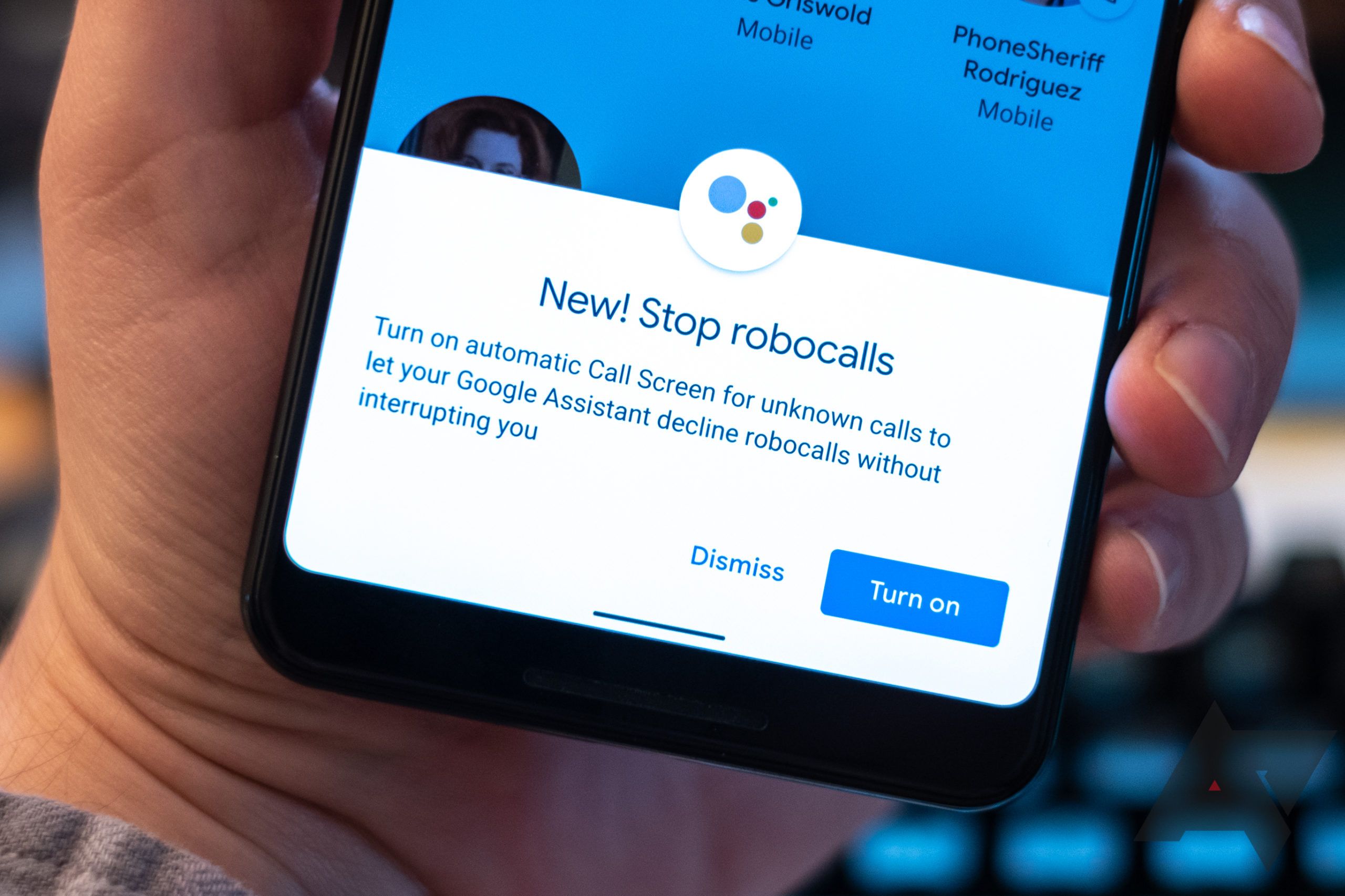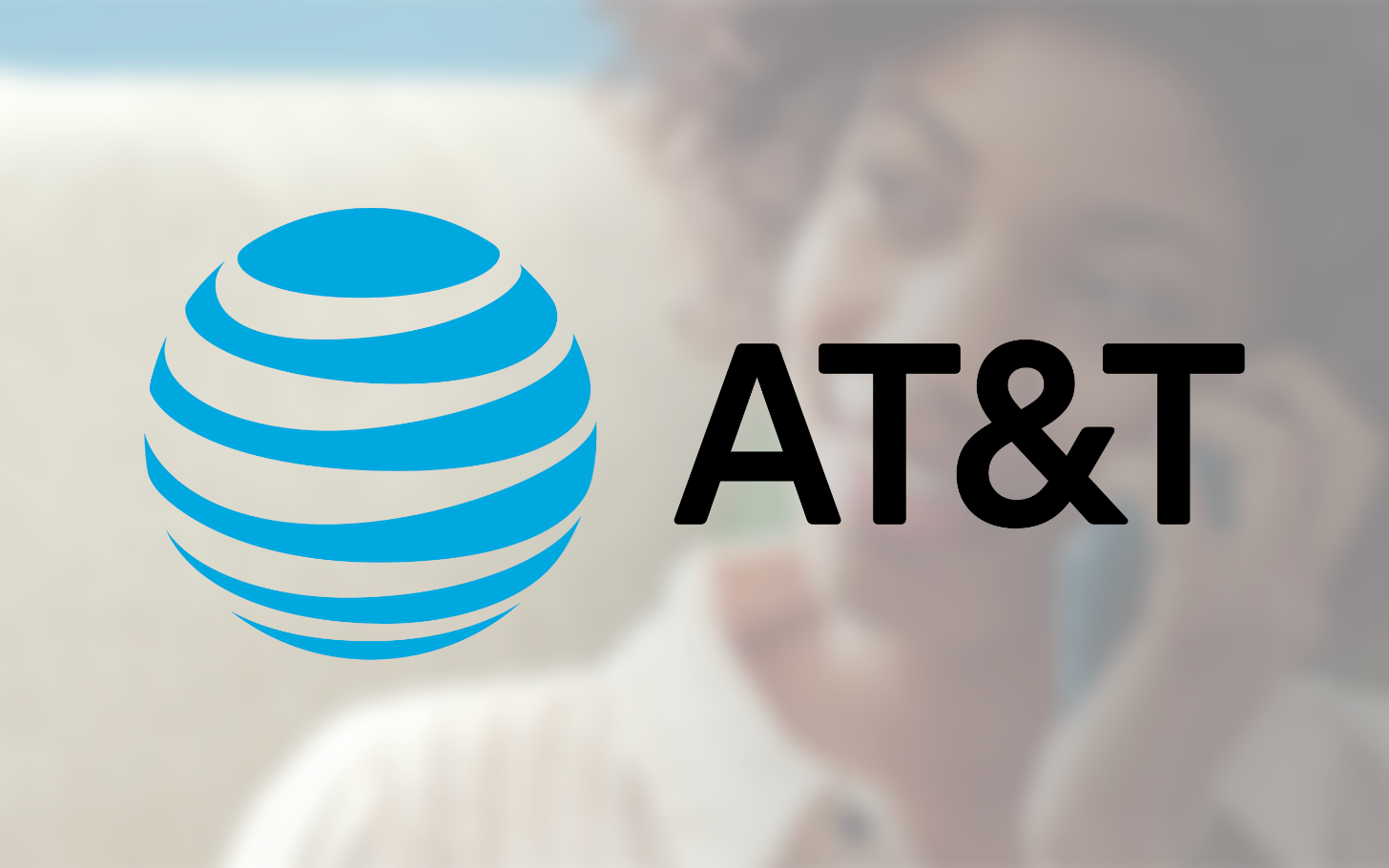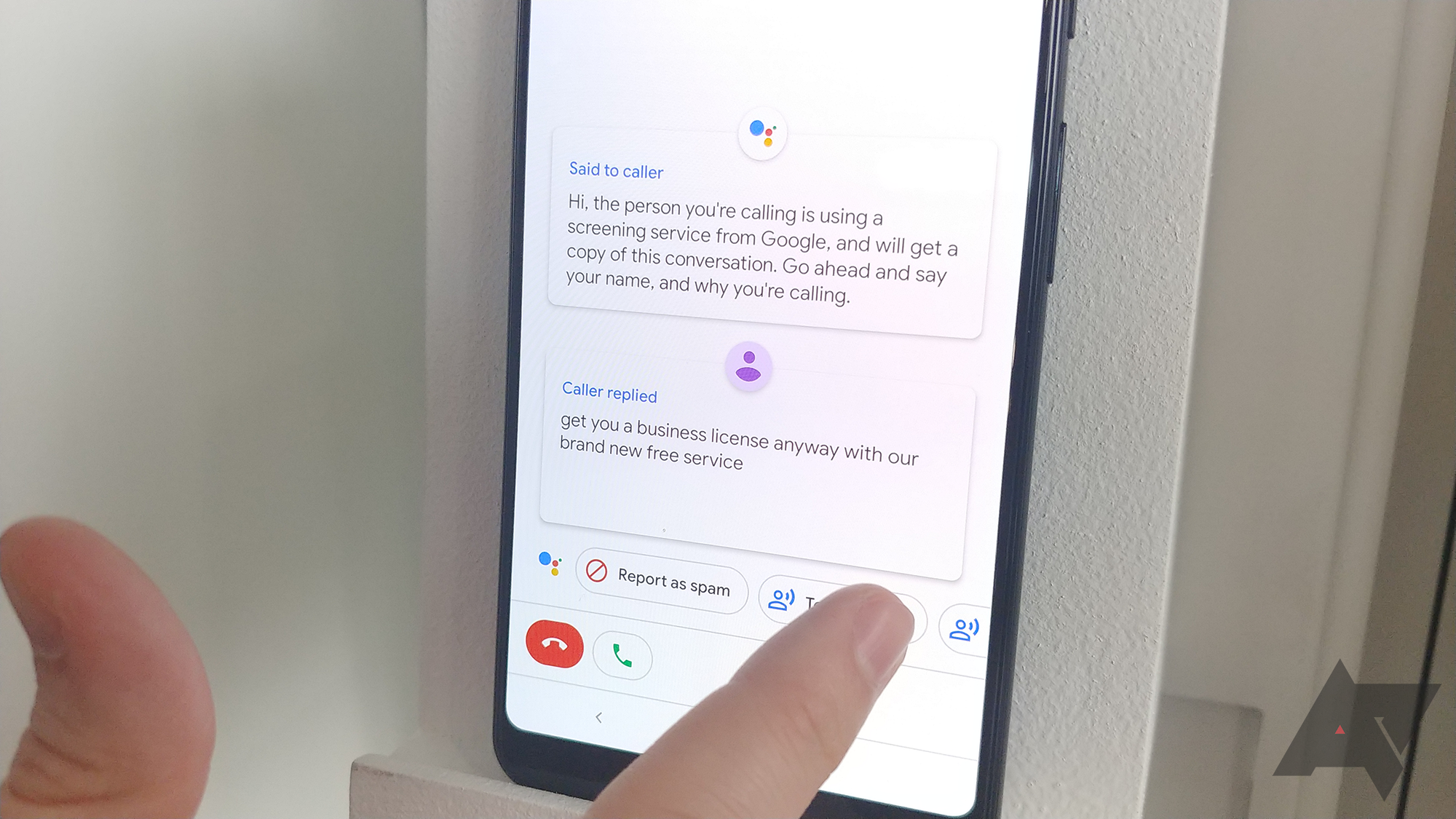latest

Read update
T-Mobile is bundling a number of a scam protection measures — some of them have been active for years while a couple are new — and is distributing them to every customer under its own and the Sprint banners in an Un-carrier move called Scam Shield. The news belies a key integration for the company that's coming in a couple of weeks.

Two robocall ringleaders face record $225 million FCC fine
But will the real number live up to that proposal?
Robocalls may be the bane of any decent person. Industry players and regulators have committed to stopping and punishing those evildoers. Indeed, the FCC has been going after them and just proposed a record $225 million fine against two telemarketers who spoofed about 1 billion robocalls over the course of four-and-a-half months in 2019. There's also a lawsuit led by seven state attorneys general that could cause some more damage. But will these dastardly dialers end up paying anywhere close to these numbers? The short answer is probably not.

Read update
Late last year, Google promised that the Pixel 4's automatic Call Screening feature would be coming to all of its Pixel phones in the coming weeks. Well, it's been eight weeks, but it looks like the feature is finally starting to roll out to other Pixel phones. We have confirmed reports that the Pixel 2 and Pixel 3 have picked up automatic Call Screening, potentially related to the latest Phone app beta.

The US Justice Department has filed lawsuits against a handful of companies and individuals, accusing them of facilitating hundreds of millions of fraudulent robocalls. The suits accuse the companies of causing "elderly and vulnerable victims" serious financial harm.

The war against robocalls has heated up this year: In June, the FCC ruled that US phone carriers could block robocalls by default, as well as allow users to automatically block unknown phone numbers from ever reaching their devices. This prompted more than ten US service providers to offer free call blocking features to all of their customers. This week, AT&T is furthering its robocall fight by enabling call verification for select Android devices.

Google announced a slew of updates as part of the first Pixel feature drop yesterday, among them the ability to automatically screen calls from unknown numbers on the Pixel 4. It looks like this option won't stay limited to the latest phone in the lineup for a long time, as Business Insider cites Google saying that it'll "roll out to all Pixel devices with Android 10 over the coming weeks."

Over the last few years, robocalls have quickly grown into one of the most universally despised issues among mobile phone users in the US. The seemingly exponential growth of spam calls has us heading toward a time where a majority of the phone calls made are spam. Today, T-Mobile, Comcast, and telecommunications company Intelliquent are announcing a technical milestone in the war on robocalls — the first call routed across three networks using an end-to-end implementation of the FCC recommended STIR/SHAKEN cryptographic security framework.

Congress has told voice service providers to shut down robocallers and instate call blocking by default. The FCC has mandated just the same. Now, 12 voice service providers have agreed to a series of principles drawn by attorneys general from all 50 states and the District of Columbia that include offering that call blocking to consumers for free, implementing STIR/SHAKEN across their networks, and cooperating in investigations.

Automatic call blocking is now the rule of the land thanks to your very own United States federal government — that means you should be getting fewer robocalls and cold dials from spoofed (faked) numbers. It also means the roll-out of a two-part authentication system between the network sending and the network receiving named SHAKEN/STIR. This very system has just been deployed for calls between the AT&T and T-Mobile networks.

Robocalls are a problem almost everyone in the US can relate to, and the fact that carriers weren't allowed to block suspected spam calls without the explicit opt-in from customers for a long time hasn't exactly improved the issue. An FCC ruling in June changed legislation around that, and AT&T was quick to act on it. The company is now automatically blocking calls it suspects as spam or fraud.

The FCC now has rules in place to compel wireless carriers to start blocking domestic robocallers on a systematic basis. Next up, chairman Ajit Pai is gearing up to tackle number spoofers, robotexting, and foreign robocallers by proposing new rules that will be voted on and, likely, enacted at the commission's August open meeting.

The government is getting behind a new round of enforcement and prevention of the dreaded robocall — the FCC has new rules in place, the Senate has approved a bill on the matter while the House is still working on it. Nevertheless, the long arm of the law has been on the prowl targeting illicit operations and that has culminated in a multilateral crackdown led by the Department of Justice and the Federal Trade Commission called "Operation Call it Quits," which includes a whopping 94 enforcement actions from 45 government agencies.

The United States Federal Communications Commission (or FCC, for short) has been discussing what to do about the increasingly-annoying problem of robocalling for a while. Today it unanimously passed a ruling that gives the green light for carriers to block unwanted robocalls by default.

FCC chairman Ajit Pai is preparing a new set of anti-robocalling measures that the commission will vote on during its next public meeting on June 6. The ruling would compel carriers to make automatic call blocking an opt-out feature for customers rather than an opt-in feature. Pai has a couple of suggestions for filtering methods including one based off the customer's own contacts list on their phone.

The latest update to Google Messages hit earlier this week, and while it's featuring a few visible changes, including a new setting to enable Suggested Actions and a new About screen, the most interesting changes aren't intended to go live quite yet. We already know Google is adding Assistant integration to Messages, and now some of that is manifesting in the app. But the most exciting addition is support for a great new carrier-level feature called Verified SMS that may put an end to scam messages (and calls).

Spam calls are the worst. In March, the Federal Communications Commission issued a warning about the "scourge" of scam robocalls and caller ID spoofers, and last month imposed hefty fines against a number-spoofing spam caller. Now, the Federal Trade Commission has filed a formal complaint against a large-scale telemarketing operation.

Ever got one of those annoying robocalls, but the number looked local or even familiar? Well, those of us that have might have some modicum of vindication. Yesterday, the FCC issued a $120 million fine to Adrian Abramovich, who was found to have made almost 100 million spoofed phone calls about a timeshare or other travel-related things.

The Federal Communications Commission wants you to know that it is fighting on the side of the average American consumer, and not just devoted to appeasing the likes of Comcast and Verizon, by taking on the existentially crucial issue of scammy phone calls. Sort of. Like, they're thinking about it.

In what is likely a smokescreen intended to distract from the FCC planning a vote to destroy net neutrality, the FCC has issued additional rules which permit telecoms to block robocalls, specifically those which use Caller ID spoofing to impersonate phone numbers that do not exist, are not allocated by telecoms to subscribers, or are inbound-only phone numbers— in other words, allocated to systems which are unable to make outgoing calls.












